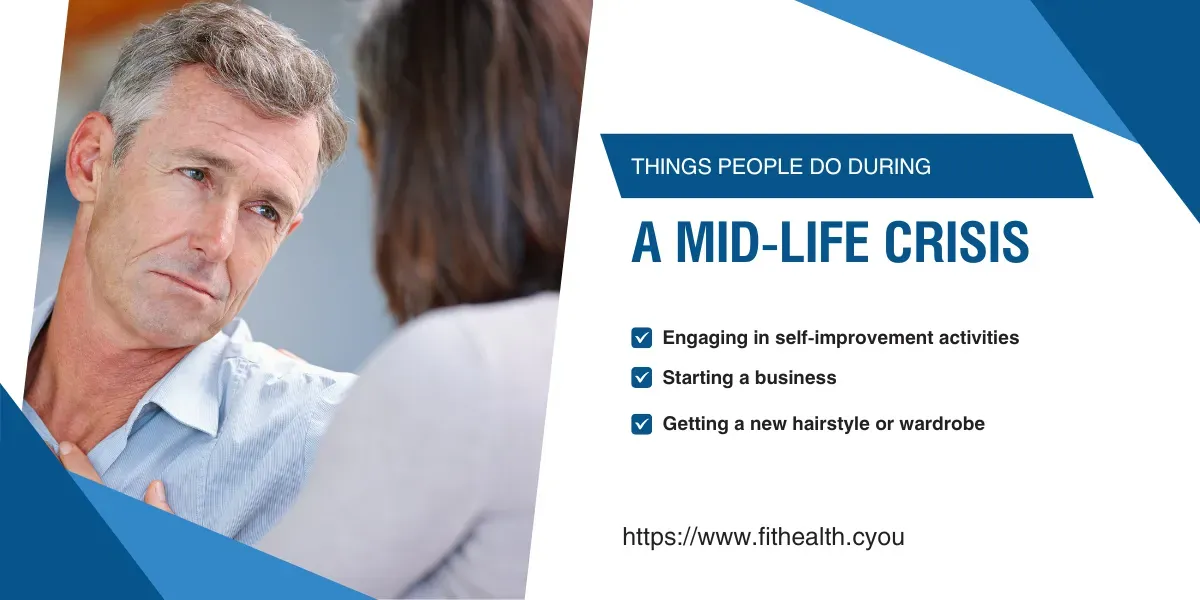The Truth about Mid-Life Crisis - Fact or Fiction?
As individuals approach their forties or fifties, they may experience a sense of unease or dissatisfaction with their lives, prompting the question of whether a mid-life crisis is a genuine phenomenon or merely a cultural construct.
Understanding Mid-Life Crisis
A mid-life crisis is a significant period of self-reflection and re-evaluation commonly occurring during middle age. It is characterized by a range of emotions, including anxiety, restlessness, and discontentment. Individuals going through a mid-life crisis often experience various signs and behaviors that indicate a shift in their perception of life and personal identity.
Common Signs of Mid-Life Crisis
- Changes in Behavior: People undergoing a mid-life crisis may exhibit sudden shifts in their behavior, such as making impulsive career changes, pursuing new hobbies or interests, or reevaluating their relationships.
- The Desire for New Experiences: A strong urge to seek new experiences and break away from routine is often a hallmark of a mid-life crisis. This may involve a desire to travel, explore new cultures, or engage in adventurous activities.
- Questioning Life's Meaning: Individuals may begin questioning the meaning and purpose of their lives, leading to existential inquiries about their achievements, goals, and overall satisfaction.
- Shifts in Relationships: Relationships can be deeply affected during a mid-life crisis. In line with stereotypes, men may seek validation by pursuing younger romantic partners or making significant relationship changes. Conversely, women may focus on personal growth, redefining their roles, or exploring new opportunities.
- Emotional Turmoil: Emotional instability is typical during a mid-life crisis, with individuals experiencing heightened feelings of anxiety, dissatisfaction, and a longing for change.
- Sense of Mortality: A realization of one's own mortality and the passage of time can intensify during this period. Thoughts about aging, regrets, and missed opportunities may become more prevalent.
It is important to note that not all individuals experience a mid-life crisis similarly, and the intensity and duration can vary. The manifestations of a mid-life crisis are unique to each person's circumstances, personality, and life experiences.
Gender Differences in Mid-Life Crisis
While the concept of a mid-life crisis is often associated with stereotypical images of men purchasing sports cars or seeking younger partners, it is crucial to recognize that both men and women experience mid-life crises in distinct ways. Gender differences in mid-life crisis can be seen in the following aspects:
- Personal Development: During mid-life crises, women may focus more on personal growth, self-improvement, and self-discovery. This can involve exploring new interests, redefining priorities, or pursuing education and career advancements.
- Reevaluating Relationships: Women may reassess their roles in relationships and society. This can include redefining boundaries, seeking fulfillment in different areas of life, or making changes to align with their evolving needs and aspirations.
- Cultural Expectations: Societal expectations and cultural norms can influence the expression of mid-life crises differently for men and women. Men may feel pressure to adhere to the traditional "male" stereotype of success and youthfulness, while women may confront societal expectations around aging, appearance, and societal roles.
It is important to approach gender differences in a mid-life crisis with an understanding that individual experiences can deviate from these generalizations. Each person's journey through a mid-life crisis is unique and influenced by various factors, including personality, culture, and personal circumstances.
Coping Strategies for Mid-Life Crisis
If you are currently experiencing a mid-life crisis, several coping strategies can assist you in navigating this transitional phase. These strategies include seeking professional counseling, practicing self-care and mindfulness, pursuing new hobbies or interests, and building a supportive network of friends and family.In conclusion, the concept of a mid-life crisis is a multifaceted phenomenon that impacts individuals differently based on their gender and personal circumstances. Whether it is a reality or a myth, it is crucial to acknowledge and address the feelings of restlessness and dissatisfaction that may arise during this stage of life.
By employing effective coping mechanisms and seeking support, individuals can emerge from the mid-life crisis with a renewed sense of purpose and direction.
Some examples of mid-life crisis behaviors or actions:
- Sudden career changes, such as quitting a stable job to pursue a long-held dream
- Engaging in reckless or impulsive behavior, such as excessive spending or gambling
- Questioning the meaning or purpose of life, leading to existential or philosophical inquiries
- Seeking extramarital affairs or pursuing younger romantic partners
- Making drastic changes to physical appearances, such as getting cosmetic surgery or a dramatic haircut
- Experiencing depression, anxiety, or other mental health issues
- Feeling nostalgic for the past or longing for a sense of youthfulness or vitality
- Developing new hobbies or interests, often with an emphasis on adventure or novelty
- Becoming preoccupied with mortality and one's own aging process
- Feeling disconnected from family or friends and seeking new social connections or networks.



.webp)
